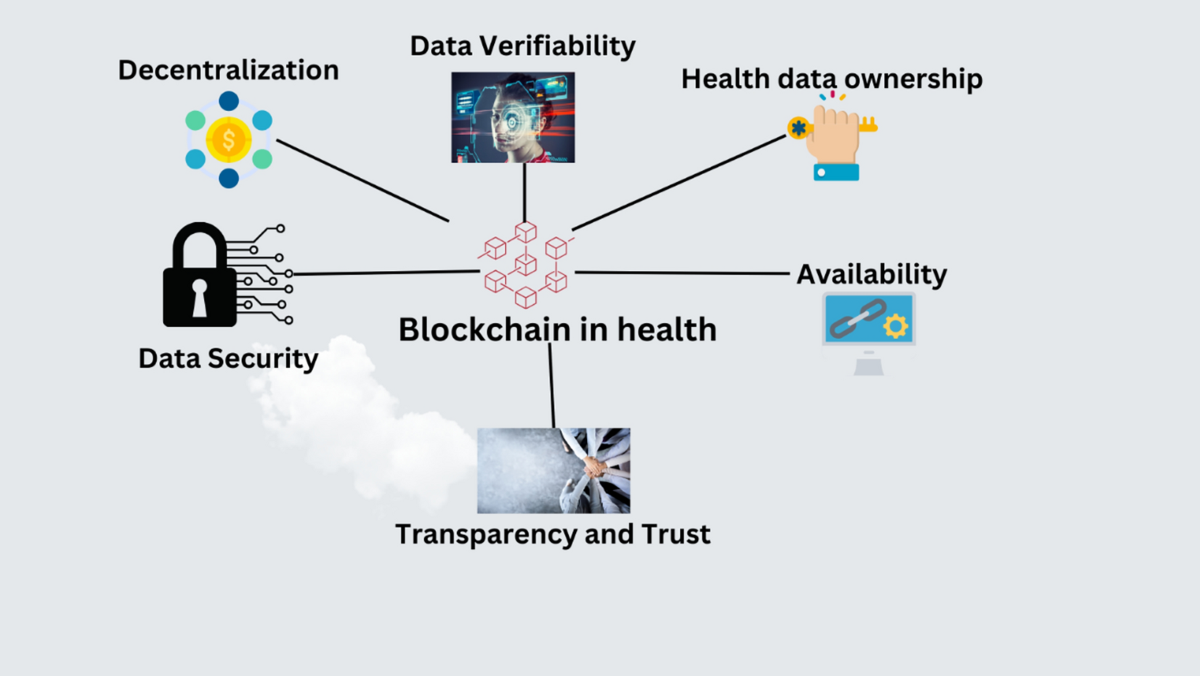Driven to Divide: Insights & Perspectives
Exploring the forces and ideas that shape our divided world.
Blockchain: The Invisible Handshake of Tomorrow
Discover how blockchain is reshaping trust and transparency, becoming the invisible handshake of tomorrow's digital world!
Understanding Blockchain: How It Revolutionizes Trust and Transparency
The concept of blockchain has emerged as a groundbreaking technology that significantly enhances trust and transparency in various sectors. At its core, blockchain is a decentralized ledger that records transactions across many computers, ensuring that any changes made are visible to all participants and cannot be altered retroactively. This inherent characteristic fosters a sense of trust among users, as it eliminates the need for a central authority and reduces the risk of manipulation and fraud. In industries like finance, supply chain management, and healthcare, blockchain is being utilized to create secure and transparent processes that empower individuals and organizations alike.
Furthermore, the integration of blockchain technology promotes accountability and simplifies auditing processes. By providing a transparent record of all transactions, stakeholders can easily verify and trace activities without relying on intermediaries. This level of transparency not only builds confidence among users but also enhances regulatory compliance and reduces operational costs. As more businesses and institutions recognize the potential of blockchain, its role in revolutionizing trust and transparency will become increasingly crucial, paving the way for a new era of digital interactions.

The Future of Transactions: Why Blockchain is the Invisible Handshake
As we venture further into the digital age, the necessity for secure and transparent transactions has become paramount. Blockchain technology emerges as a robust solution, embodying the concept of the invisible handshake—a trust mechanism that operates without the need for intermediaries. This decentralized ledger system ensures that each transaction is recorded immutably and verified by a network of users, making it nearly impossible to alter once established. In a world where trust is often misplaced, the transparency offered by blockchain creates a more reliable and efficient environment for conducting business and personal transactions.
Moreover, the implications of this technology extend beyond mere financial transactions. For example, smart contracts—self-executing contracts with the agreement directly written into code—can revolutionize various sectors, from supply chain management to real estate. With blockchain as the invisible handshake, parties can confidently engage in agreements, knowing that terms will be executed automatically and fairly, without the risk of manipulation. This future of transactions promises not only enhanced security and efficiency but also the democratization of trust in our increasingly interconnected world.
What is Blockchain and How Does It Impact Our Daily Lives?
Blockchain is a decentralized digital ledger technology that records transactions across multiple computers in such a way that the registered transactions cannot be altered retroactively. This foundational technology underpins cryptocurrencies like Bitcoin and Ethereum, but its applications extend far beyond digital currencies. By providing transparency, security, and immutability, blockchain is reshaping how we conduct business, interact, and store information. Businesses across various sectors are beginning to harness its potential for improving supply chain management, streamlining financial transactions, and ensuring data integrity.
In our daily lives, the impact of blockchain can be seen in several areas. For instance, it enhances the security of online transactions by eliminating the need for intermediaries, which reduces fraud risks. Additionally, blockchain technology is being utilized in voting systems to ensure transparency and trust in electoral processes. As more industries adopt this technology, we can expect to see increased efficiency and lower costs in everything from healthcare records to real estate transactions, ultimately transforming the way we interact in our everyday transactions.